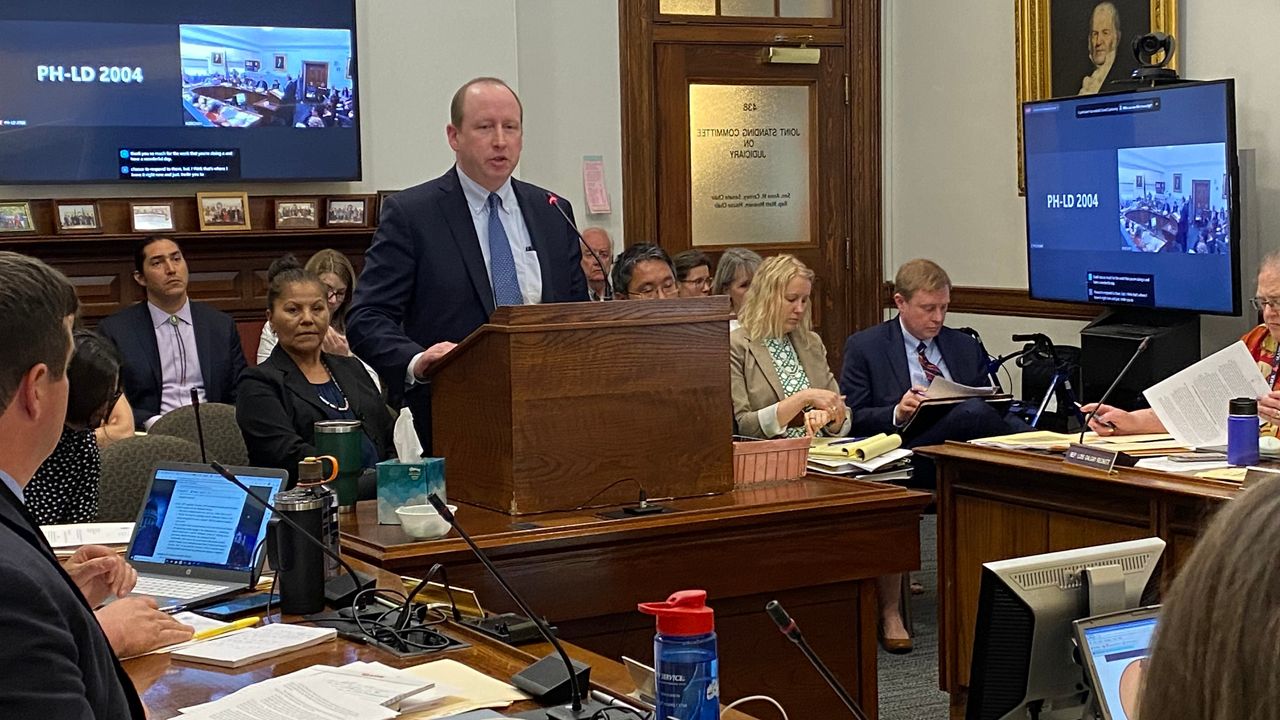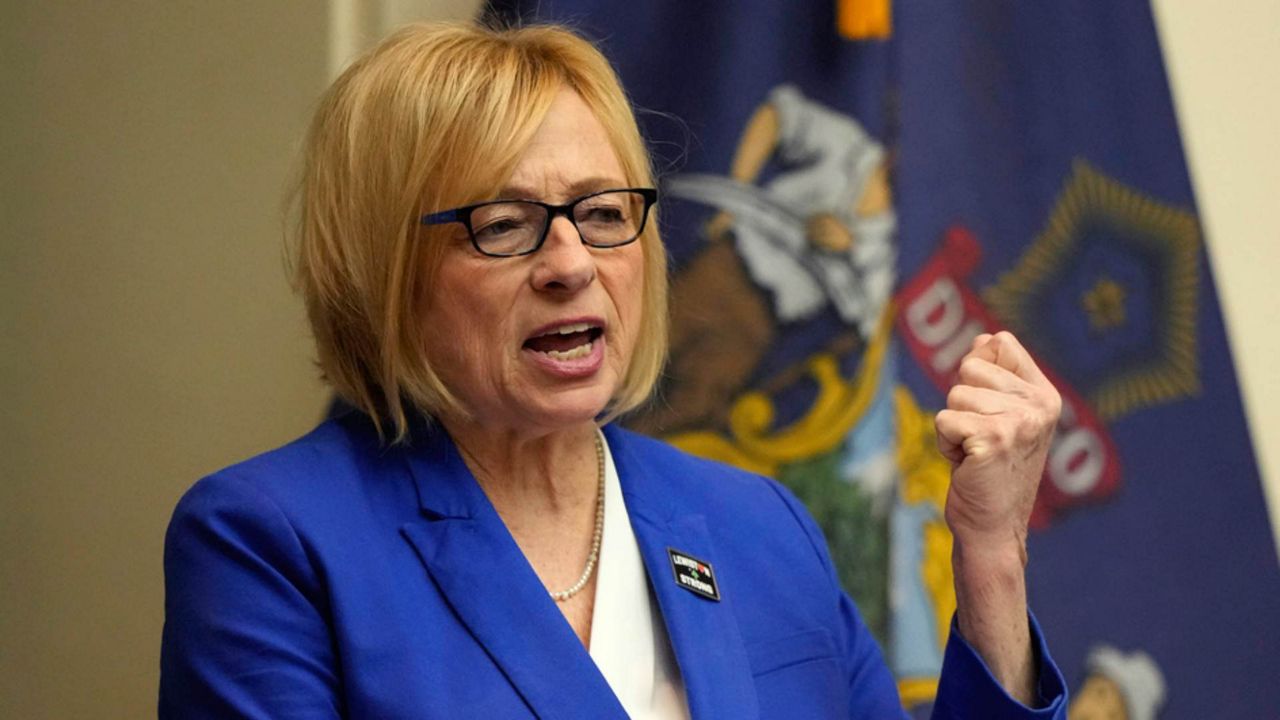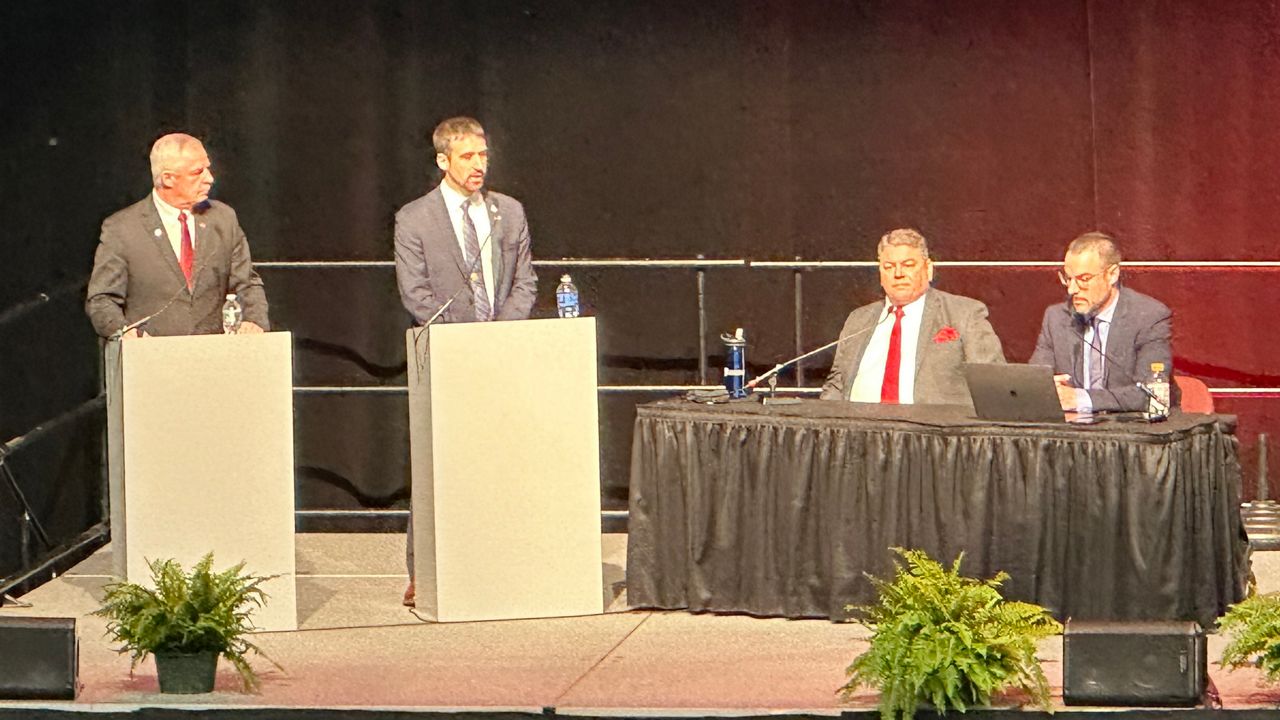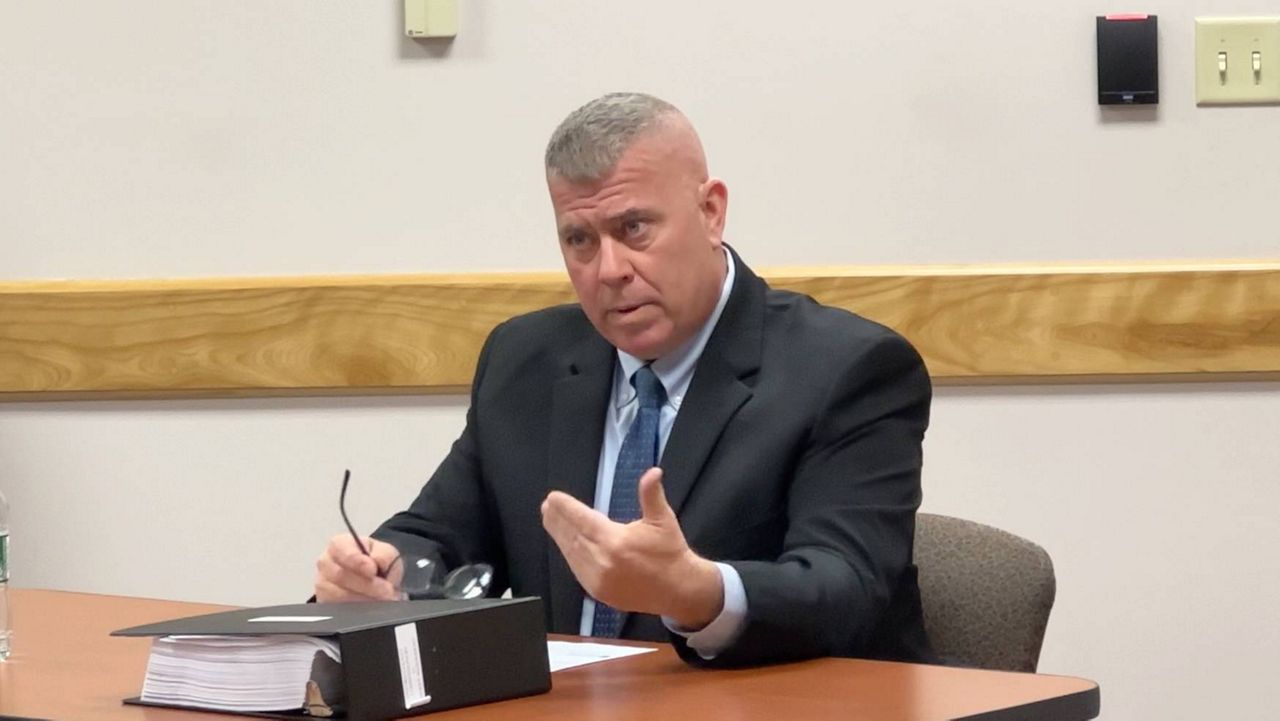A legislative committee voted Thursday to advance a bill to put Maine’s tribes on equal footing with other tribal nations across the country, despite continued opposition from Gov. Janet Mills.
The Judiciary Committee voted 10-4 on an amended version of LD 2004, with all Democrats and one Republican voting in favor of the bill.
Maine’s four tribes are often ineligible for federal programs and benefits that help all other Indigenous people — 574 tribes — across the country.
That’s because of Maine’s unique 1980 settlement that states no federal laws will apply to the tribes if they might affect state law.
House Speaker Rachel Talbot Ross (D-Portland) is sponsoring the bill that would give the tribes access to 151 federal laws that have passed since 1980 and all new laws moving forward.
The amendment approved Thursday carves out federal air and water laws so that state laws would continue to govern tribal lands in Maine.
The bill stops short of granting full sovereignty, an effort that stalled last year when Gov. Janet Mills threatened to veto the measure.
But it would remove uncertainty the tribes now face because there have been times in the past when state government has prevented them from getting grants or participating in programs because of concerns about potential legal conflicts, tribal leaders said.
“We offer this amendment as an attempt at advancing an honest, forthright policy conversation to advance equality for the Wabanaki Nations,” Passamaquoddy attorney Corey Hinton said.
At a public hearing last month, Chief Clarissa Sabattis of the Houlton Band of Maliseet Indians said that Congress passes bills to allow tribal governments to administer programs related to “health care, law enforcement and public safety.”
“But we cannot confidently pursue, invest in, and staff these programs because we don’t know whether — or when — the State may challenge our authority to administer the programs due to some effect on state jurisdiction,” she said.
Mills opposes the bill because it does not specify which state laws would no longer apply to tribal nations and because of concerns about increased litigation, according to Gerald Reid, her chief legal counsel.
Instead, he proposed having the governor’s office, the tribes and the state’s Congressional delegation work together to identify specific federal laws that could benefit the tribes and work to make them apply in Maine.
Even with the amended language, Reid said Thursday that the bill is confusing and flawed.
“It’s this incredibly complicated legal framework,” he said. “No other state has done anything like this. It’s really legally bizarre what this bill is attempting to do.”
In prior written comments to the committee, Reid also noted that tribes have received more than $423 million from the federal government since 2019, saying that shows the tribes are “currently benefitting substantially from federal Indian law.”
However, a study released in December by the Harvard Project on American Indian Economic Development paints a different picture.
It found that tribes in other states have seen “remarkable economic growth” because of the federal Indian policy of self-determination.
But in Maine, the tribes are “stark economic underperformers relative to the other tribes in the Lower 48 states.” Statistics show that per capital income has grown by 61% for tribes located outside Maine, while Maine tribes have seen incomes grow by just 9%.
“The subjugation of the Wabanaki Nation’s self-governing capacities is blocking economic development to the detriment of both tribal and non-tribal citizens alike,” the report concluded.
The bill now heads to the full House and Senate, where its future is uncertain.
Those who opposed the bill in committee said they felt rushed to make an important decision.
Supporters said it’s time to push the issue, even if it isn’t likely to pass this year.
“My feeling is if we pass this amendment, take this to the floor, I am totally anticipatory that it will be defeated,” said Rep. Lois Galgay Reckitt (D-South Portland). “But in the meantime, we will have forced the entire Legislature to look at this issue in a way that might move us forward.”









